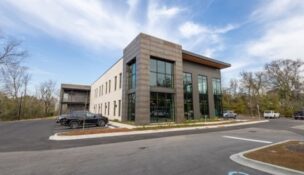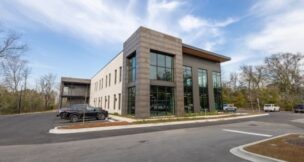Charleston takes new approach to housing crisis
Staff //October 26, 2021//
This story was originally published in the Oct. 18, 2021 edition of the Charleston Regional Business Journal.
In less than 10 years, Charleston will need 16,351 affordable places for people to live, according to a city report. To find and build those affordable residences, Charleston is seeking out a real estate broker whose sole job will be to find land for projects.
Charleston Mayor John Tecklenburg said of all the concerns the coronavirus pandemic has made worse, affordable housing has been near the top — especially as more people work from home and more people from other areas sought to move to the region.
Demand grows higher, supply dwindles, prices go up.
“We just have a huge thousand-pound gorilla in the room of the real estate market to contend with as we try to keep some housing affordable here,” Tecklenburg said.
He understands Charleston market is dynamic with housing developments popping all over the region, but the downside is that the more affordable housing is being pushed farther and farther away from where most people work, exploding in Berkeley and Dorchester counties, and places like Johns Island in Charleston County, where land is much more affordable.
“You just end up with a situation where what’s available for folks is they have to travel farther to get where it’s affordable,” he said. “And that’s not a good thing,”
The mayor understands the dire need to create more housing and to make not only the process to find more affordable and attainable housing easier on residents, but on homebuilders too. That includes changing zoning and regulations that might incentivize companies that aren’t building affordable housing to possibly consider it down the line.
Tecklenburg regularly discusses housing with major employers who are expanding in and moving to the Charleston region, asking that they consider creating some housing for their employees, so that they can guarantee some affordability.
“You have companies that want to come here or consider coming here and they’re taking a look at what housing costs are and some of them get leery because they don’t want to bring employees here who can’t afford a decent place to live,” Tecklenburg said.
As the city grows and refines what it needs to be successful, Tecklenburg sees affordable housing tools as the essential to the city’s “toolbox.”
That’s where a real estate broker will come in, contracted in partnership with the city and paid through commission.
The individual will focus on land near the Lowcountry Lowline, providing some of the best access points to working residents, Charleston Director of Housing & Community Development Geona Shaw Johnson said.
This is the city’s second go at a real estate agent, having tried it two years go. While the process worked and a parcel of land was acquired, the former individual in the role moved on to another job.
But the need still exists in Charleston, and the city felt it was time to look for a replacement.
Johnson said the city would be best served by an agent who understand affordable and attainable housing, and must possess a knowledge of the zoning requirements, the acquisition process and the Charleston market and vision. The goal is to have someone hired next month.
“That’s really the premise of it, wanting to have someone who has those skillsets, the knowledge of the market and what’s available to really help in our efforts to advance, increase affordable, attainable rental and for-sale housing in our communities,” Johnson said.
Like any buyer, the city also wants help obtaining land that is priced well in such a competitive time.
Until now, Johnson said she and city employees have taken it upon themselves to drive through neighborhoods to seek out potential property, whether that’s a plot of land or land with a parcel on it. The city is also regularly in touch with neighborhood councils, residents and nonprofit and for-profit partners to keep a pulse on what’s available.
Moving forward, however, Johnson said Charleston wants a more fine-tuned, deliberate process where it can hopefully garner greater access to what’s available.
“Even though we have a strategy in place, we need a more defined, more intentional strategy about looking for opportunities that will lend to enhancing our efforts to access and build affordable housing,” she said.
Along with building more affordable housing, it’s critical to figure out how residents can earn better wages so that they can afford more of the housing currently available in the region, Tecklenburg said.
“If you look at the differential rise of housing costs and the kind of marginal rise in income, there’s a pretty big gap there … If we could pay folks more, they could better afford the housing. No question about it,” Tecklenburg said.
A better educated workforce could close that gap and the state as a whole is working toward improved training, focused schooling and increased apprenticeships as potential solutions.
“You can have workforce development and training for trades and electricians and plumbers, and they make pretty gosh darn good money, without having a college degree,” he said. “As long as you have that value added to what you’re doing to bringing in more income.”
There are many jobs that could stand to pay a little bit more money, especially the city’s flagship hospitality industry, and Tecklenburg said it would be deservedly so.
He added that the city of Charleston recently increased its minimum wage to $13 an hour, and that he is not done yet trying to get employees paid more and trying to get them more affordable housing options.
“We need housing at all price levels to accommodate demand,” Tecklenburg said. “I’m not against development at all levels, but if we leave out the workforce and the attainable level, then it just continues to compound this somewhat called crisis that we have.”
















